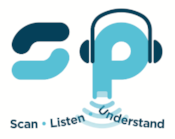Speaking Exams Cancelled in NI GCSEs and A-Levels
Learning a language is many things- fun, rewarding, useful on your holidays when you’d like to take the lettuce off your burger and grab an extra onion rings instead. But for some students in Northern Ireland, the language-learning experience has been dramatically changed by some alterations that the CCEA have made to GCSE and A-Level assessments- last week, many students woke up to find their language speaking exams cancelled.
The speaking element of language qualifications has been part of a student’s assessment criteria since the introduction of the modern GCSE and A-Level system, as well as under the old GCE system in the UK. It’s often been regarded as one of the more challenging parts of a language assessment, but that’s not true for everybody. Many students with literacy differences like dyslexia can pick up easy marks that truly demonstrate their understanding of a language in a spoken exam too. In a situation where they don’t have to rely on their reading ability to intermediate between their understanding of an assignment and their skills in the language, a lot of people whose reading isn’t as strong can still showcase their talent and prove themselves for some important marks.
The loss of a spoken exam can also be a problem when it comes to studying – when preparing for a speaking exam, many tutors and teachers will prepare students using a variety of mock scenarios and spoken exercises to help the language speaking process feel more natural. For somebody with dyslexia, this kind of learning can often be preferrable to written exercises, as it allows them to develop their spoken language skills independently from their reading ones – it takes the focus off the written, and instead develops the ability to understand via a different means.
The omission has been made due to the assessment changes bought in as part of the nation’s response to coronavirus. Summer exams were cancelled in 2020/21 and are going forward with a reduced timetable in 2021/22, with pupils sitting ‘significantly fewer’ exams in each subject. In terms of language exams, this is quite a change – in a Spanish GCSE, for example, a speaking test would have counted for just over 25% of their overall mark in the subject.
It’s a move that’s divided both teachers and students – taking to Twitter, it’s easy to find some students that are relieved they won’t have to sit an exam that’s traditionally been regarded as one of the hardest parts of the qualification. It’s also easy to find some whose skills lie in the spoken element of a language feel a little cut adrift, as well as some educators worrying that devaluing the spoken skill set could prove an issue for people whose reading skills aren’t as strong. There are also voices questioning what this means going forwards - could these changes establish a trend that puts more of a focus on the written in MFL, and mean that the spoken element of classroom practice too will decline in favour of writing and reading tasks for language learning? That could be bad news for people with dyslexia as well as those with ADHD too, as many find interpersonal, conversational learning a much easier mode of study.
The CCEA have stated that the option to take these speaking exams is still there for students that wish to, but there hasn’t been any formal information released yet on what this means for how they’re prepared for these exams. If half a year group decide to take a speaking exam and half don’t, for example, it could potentially mean much more work for educational professionals, coaching two different groups in a cohort for different assessments. This might prove difficult in a year where we’ll still very much be feeling the aftereffects of the Coivd-19 pandemic and dealing with a number of changes to the assessment system across the board, with student and staff stress levels likely still riding at an all-time high.
It’s a divisive move, and could alter the way that pupils in Northern Ireland (and indeed, the rest of the world) learn languages in schools - as well having an impact on pupils with literacy differences like dyslexia. Covid-19 has changed the way we learn forever, and as a society we’re all still trying to work out what works best for students across the board. It’s been an odd time to be in education in any capacity, to say the least, and it’ll be interesting to see how students respond to such a widespread and fundamental change in assessments.
